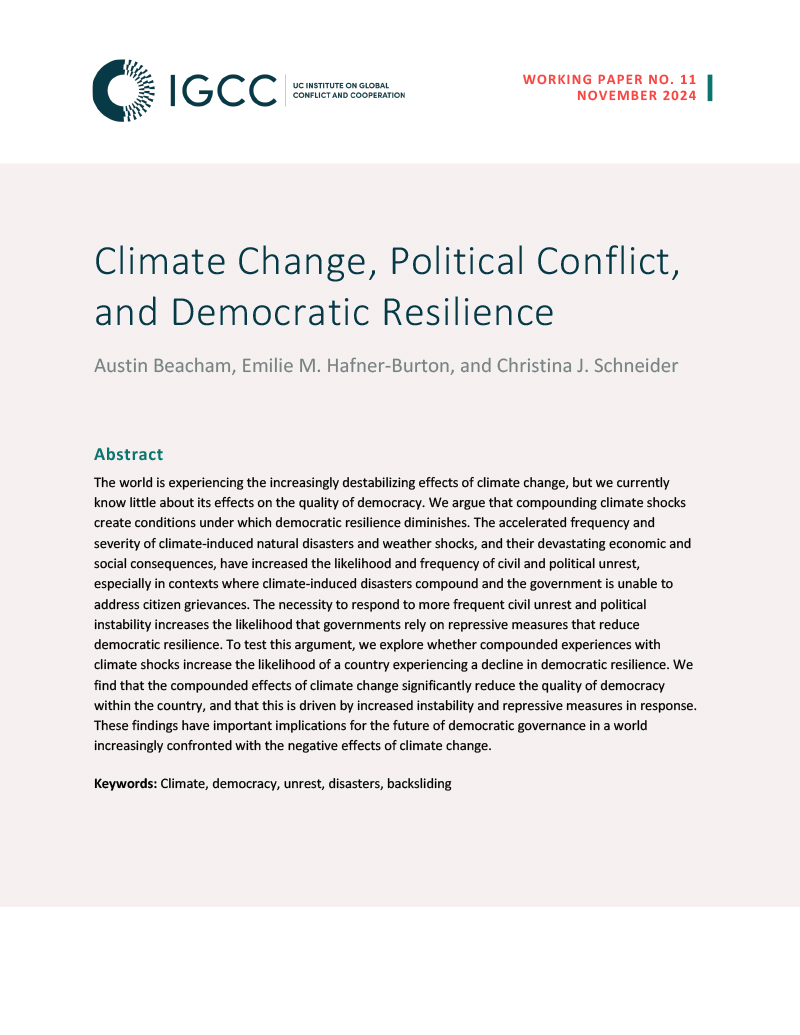Climate Change, Political Conflict, and Democratic Resilience

In this working paper, Austin Beacham, Emilie Hafner-Burton, and Christina Schneider find that the compounded effects of climate change significantly reduce the quality of democracy. As the economic and social effects of climate-induced natural disasters and weather shocks grow, so too do civil and political unrest—and repressive government responses. These findings have important implications for the future of democratic governance in a world increasingly confronted with the negative effects of climate change.
DownloadThe world is experiencing the increasingly destabilizing effects of climate change, but we currently know little about its effects on the quality of democracy. In this working paper, co-authors Austin Beacham, a postdoctoral fellow at the Georgia Institute of Technology, Emilie M. Hafner-Burton, a professor at UC San Diego, and Christina J. Schneider, a professor at UC San Diego, argue that compounding climate shocks create conditions under which democratic resilience diminishes. The accelerated frequency and severity of climate-induced natural disasters and weather shocks, and their devastating economic and social consequences, have increased the likelihood and frequency of civil and political unrest, especially in contexts where climate-induced disasters compound and the government is unable to address citizen grievances. The necessity to respond to more frequent civil unrest and political instability increases the likelihood that governments rely on repressive measures that reduce democratic resilience. To test this argument, the authors explore whether compounded experiences with climate shocks increase the likelihood of a country experiencing a decline in democratic resilience. They find that the compounded effects of climate change significantly reduce the quality of democracy within the country, and that this is driven by increased instability and repressive measures put in place in response. These findings have important implications for the future of democratic governance in a world increasingly confronted with the negative effects of climate change.
Thumbnail credit: John Englart (Flickr)